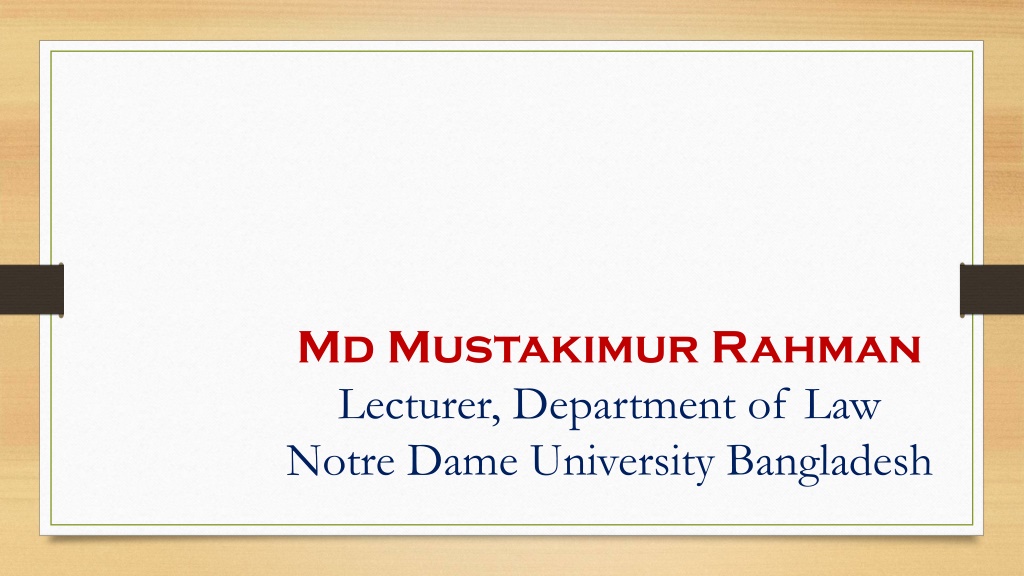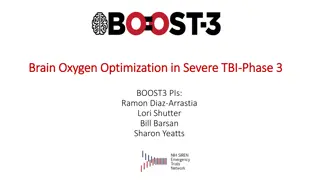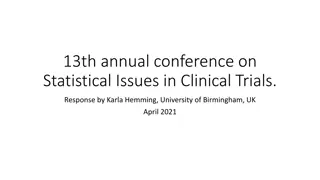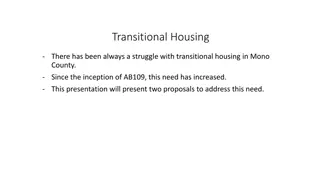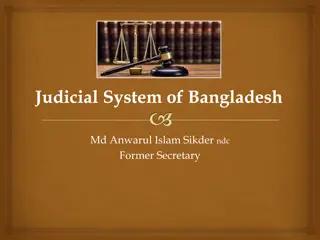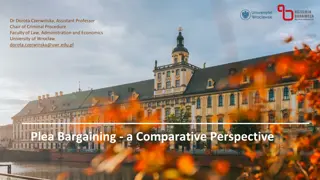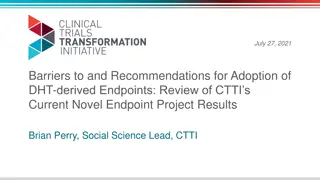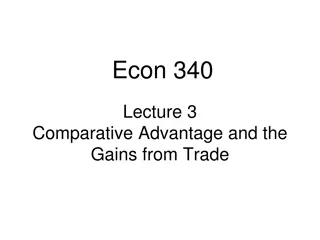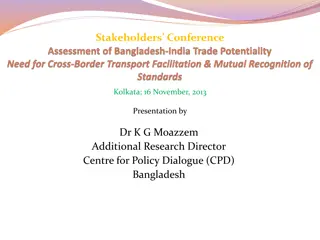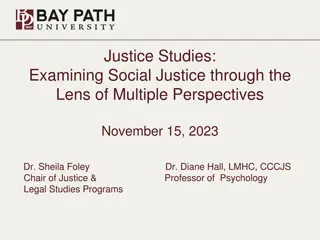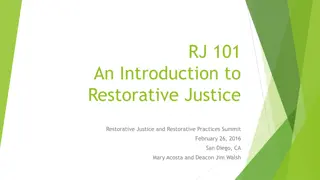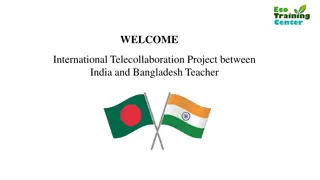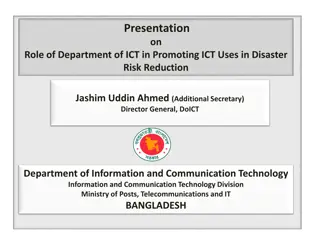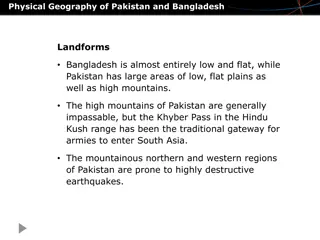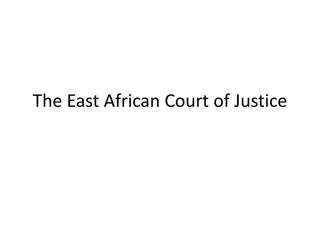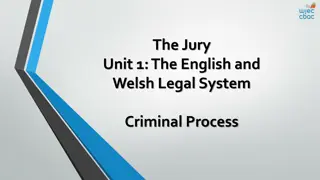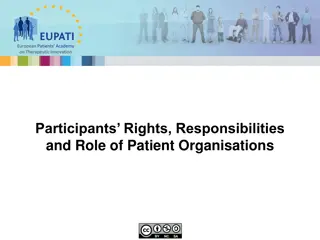Comparative Study of Transitional Justice Trials in Bangladesh and East Timor
Scrutinizing the structures and practices of the ICT-BD and the UN-sponsored Special Panels in East Timor, this study compares domestic and hybrid tribunals. It delves into the historical background of both countries and examines key differences such as judicial appointments, definitions of crimes against humanity, and the fairness of trials.
Download Presentation

Please find below an Image/Link to download the presentation.
The content on the website is provided AS IS for your information and personal use only. It may not be sold, licensed, or shared on other websites without obtaining consent from the author. Download presentation by click this link. If you encounter any issues during the download, it is possible that the publisher has removed the file from their server.
E N D
Presentation Transcript
Md Mustakimur Rahman Lecturer, Department of Law Notre Dame University Bangladesh
PROJECT TITLE: TRANSITIONAL JUSTICE TRIALS IN BANGLADESH AND EAST TIMOR: A COMPRATIVE STUDY BETWEEN DOMESTIC AND HYBRID TRIBUNALS
INTRODUCTION MAIN OBJECTIVE: to scrutinise the structures and practices of the ICT- BD and the United Nations-sponsored Special Panels established to try Serious Crimes in Dili, the capital of East Timor; In case of Bangladesh, it is purely domestic tribunal; East Timor, it is a hybrid model organised by the UN;
A BRIEF HISTORY OF BANGLADESH AND EAST TIMOR BANGLADESH: The Liberation of War of Bangladesh, 1971 also known as the Bangladesh War of Independence; The war continued almost 9 months and ended on 16 December 1971; in 1973, Bangladesh enacted the International Crimes (Tribunals) Act (ICT);
A BRIEF HISTORY OF BANGLADESH AND EAST TIMOR EAST TIMOR: In 1975, Indonesia invaded East Timor and claimed sovereignty; In 1999, the UN organized a referendum in which the Timorese voted for independence; In response, a campaign of violence and arson had begun by the Indonesian National Army and pro- Indonesian Timorese militias; In 2000, the Special Panels of the Dili District Court (also called the East Timor Tribunal) was created by the UN Transitional Administration in East Timor (UNTAET)
COMPARISON BETWEEN BANGLADESH AND EAST TIMOR BANGLADESH: Appointment of judges: A military person may be appointed as a chairperson or member of a tribunal [Section 6 (2) of the 1973 Act] Domestic tribunal: No foreign judge is allowed to work in the Bangladeshi tribunal. All judges are Bangladeshi with no substantive experience in dealing with crimes under international law Definition of Crimes Against Humanity: Under the Rome Statute, crimes against humanity is defined as, . the attack must be conducted as a part of widespread and systematic attack . , however, in Bangladesh, it doesn t have to be systematic and widespread
COMPARISON BETWEEN BANGLADESH AND EAST TIMOR Fair trial: Ensuring safety policy, no provision of victim and witness protection Independence of Judiciary: Connection between the government officials and the judicial officers; The government is absolutely crazy for a judgment. The government has gone totally mad. They have gone completely mad, I am telling you. They want a judgment by 16thDecember...it s as simple as that 100% conviction rate
COMPARISON BETWEEN BANGLADESH AND EAST TIMOR EAST TIMOR: Model of the tribunal: This tribunal is hybrid in nature and the Panel was composed of two international judges and one Timorese judge; Definitions of crimes followed by other international instruments; For example: genocide, crimes against humanity, war crime and torture; Provision of impose fines up to 500000 USD
COMPARISON BETWEEN BANGLADESH AND EAST TIMOR PRACTICAL NATURE OF THE TRIBUNAL: It was in lack of resources and logistic support; The tribunal had no secretariat, court reporters, stenographers as well as no translator; Some Trials have been criticised for violating international standards; The main targets who were residing in Indonesia.
FINDINGS: Although the theoretical model seemed well-structured to provide justice. The Dili District Court has failed to prosecute the most responsible for massive human rights abuses; In Bangladesh, the model is poorly designed which was unexpected and standoffish to us.
CONCLUSION The branch of International criminal law is growing in many ways, but it seems the future researchers need to work on this area for forthcoming tribunals. Especially, when it comes to the matter of a domestic model, it needs more international attention to form a tribunal that will globally be accepted.
